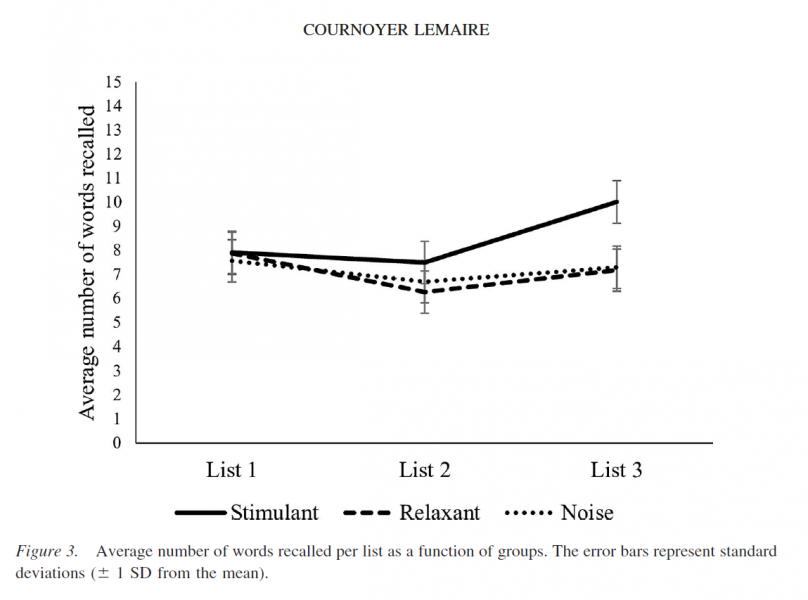In another study conducted by the University of Montreal, looked into the effects of background music on long-term episodic memory. Looking at the effects of stimulating or relaxing background music they had students memorize three separate word lists and their memory was tested on their capacity for word recall. One unique factor of this specific study was that they considered the variability of IQ of all the individuals in the exam. They also state that “improved cognitive performance following the exposure to classical music was not specific to music but extended more broadly to other arousing and positive auditory stimuli” (Lemaire, 2019). Taking 35 French Quebec University students, they were randomly assigned to three groups. Group 1: stimulating music n=10, group 2: relaxing background music n= 10, and group 3: nonmusical auditory control group n=11. “The learning phase consisted of memorizing 15 words appearing successively and paced at 3s per word” (Lemaire 2015). The auditory stimulus started 15 seconds before the learning phase and ended 15 seconds after the learning phase. The learning phase was followed by a distraction phase where they did simple math questions for two minutes. Finally, in 60 seconds they were asked to recall as many words as they could remember. After a 30 seconds rest period, the same task was performed again with the second and then third-word list. The “results indicate that the stimulant group recalled the same number of words as other groups on the first and second lists but tended to perform better than both the relaxant and the noise groups on the third list” (Lemaire, 2019). However this result is not consistent when they did not control for IQ “the number of words recalled may change according to the different levels of IQ” (Lemaire, 2019). Another reason why the simulant group did better may be due to the “potential impact of a prolonged exposure to the stimulating music” (Lemaire, 2019) where the person may get desensitized and the music just becomes white noise.

The final verdict of this study is that there was no concrete evidence to show that stimulating music will be beneficial and there are variables such as the individual IQ scores that influence episodic memory.
Reference:
Lemaire, E. C. (2019). The effect of background music on episodic memory. Psychomusicology, 29(1), 22-34. doi:http://dx.doi.org.ezproxy.library.ubc.ca/10.1037/pmu0000234
Learning Significance